In a momentous celebration of two decades, the “Arasbaran Cultural Center” was the stage for the 20th anniversary of “Harmony Talk”, an online journal that has become a cornerstone in the music community. Sadjad Pourghanad, the editor-in-chief, delivered a speech that resonated with gratitude and vision.
Tag Archives: harmonytalk
Celebrating 20 Years of Harmony Talk’s Journey: Resilience, Evolution, Honoring the Legacy and Navigating Future Growth
HarmonyTalk Journal’s Twentieth Anniversary Celebration
On the 10th of Khordad, 1403 (equivalent to May 30, 2024), the twentieth anniversary celebration of the online journal “HarmonyTalk” took place at the Ersbārān Cultural Center. The event garnered such interest from enthusiasts that the venue was completely filled.
HarmonyTalk Celebrates 11th Anniversary
April 6 marks the anniversary of launching HarmonyTalk.com. Back in 2004, HarmonyTalk was rather a blog dedicated to music. Gradually, however, it found its way to becoming a more sophisticated journal with an intensive but not exclusive concentration on classical music.
Latest posts
- Transition to Enlightenment: Six Lectures on Mozart’s String Quartets (5)
- Nasser Masoudi: The Voice of Gilan and a Legacy of Iranian Music
- Farhad Poupel: The Voice of the Shahnameh in the Orchestras Around the World
- Five Major Myths About Mozart’s Life
- Bahma Rajabi Passed Away!
- Reza Vohdani; Unveiling unpublished works, preservation of Iranian classical music
- Ahmad Pejman Passed Away!
- Timeless or Timely: The Role of Historical Context in Defining Artistic Value
- Leading the Charge in Censorship
- The Legacy of Khosrow Jafarzadeh
- Transition to Enlightenment: Six Lectures on Mozart’s String Quartets (4)
- Fereydoun Shahbazian, An Iranian Musical Icon Passed Away
From Past Days…

Is the Iranian National Anthem a Copy? (I)
The alleged similarity between the Iranian and South Korean National Anthems has been a matter of discussion among musicians in Iran for several years. Earlier in 2021, the issue was taken to the media again with not only claims that the anthem is very similar to another song but also the suggestion that its musical content should draw more on the Iranian national music. Some even went to the extent to suggest replacing it with the song “O, Iran” composed by the late Rouhollah Khaleghi. Before delving more into the main issue, it would not go amiss to consider some technical characteristics of the song “O, Iran” composed in 1944.
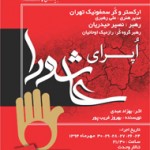
Ashoura Opera
Ashura Opera was composed by Behzad Abdi, the Iranian composer, in 2008 based on librettos compiled by Behrouz Gharib. The main source for the libretto is poems by Mohtasham Kashani, a sixteenth century Iranian poet.
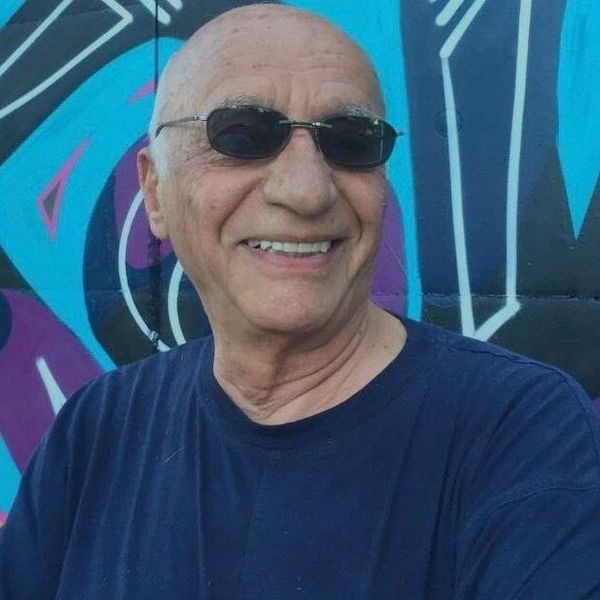
The Legacy of Khosrow Jafarzadeh
This year marks the fifth anniversary of the passing of Khosrow Jafarzadeh (Khosrow Djafar-Zadeh), a distinguished architect and pioneering researcher of Iranian music, whose contributions to the magazine “Harmony Talk” have left an indelible mark on the field. The absence of this remarkable individual has significantly impacted the expansion and advancement of his theories, which are heralded as some of the most progressive in the history of Iranian music
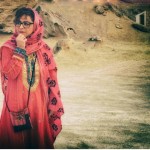
Three singers in one larynx
Sima Bina (b. 1945) is a unique singer among the singers of Golha radio programmes which were broadcast on Iranian National Radio for 23 years from 1956 to 1979. She received her first lessons in music from her father who was a poet, a musician and the most important supporter of Sima’s cultural activities.
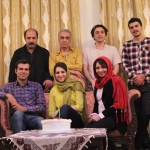
HarmonyTalk Celebrates 11th Anniversary
April 6 marks the anniversary of launching HarmonyTalk.com. Back in 2004, HarmonyTalk was rather a blog dedicated to music. Gradually, however, it found its way to becoming a more sophisticated journal with an intensive but not exclusive concentration on classical music.
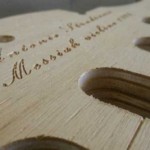
The Mystery of Messiah
Antonio Stradivari (1644 – 18 December 1737) was an Italian luthier and is considered the most significant and greatest artisan in this field.

Music education in third-world countries
Music education in third-world countries is facing many problems that limit access to it and it’s full of challenges. These rising and falling obstacles are made of the socioeconomic, cultural educational systems, etc.

Interview with the Makers of the New Qeychak (III)
In this project, my specialized responsibility was the basic drawings of the desired instrument with the help of engineering and mechanical software. I have also the carried out phases related to engineering designs, related variables, and volume and weight calculations under Mr. Ziaei’s direct supervision from the very beginning. Regarding the challenges of this work, suffice it to say that the set of designs for the instrument lasted more than 9 months in the final stage of the project only.

From the Last Instrumentalist to the First Composer (I)
Music as an art has its own special history; emergence of a singer, of an instrumentalist and then the emergence of the strong character of a composer covers three significant phases of the art of music. With the emergence of composer which was simultaneous with the emergence of the language of music, this art managed to offer a domain for criticism for its composer; a procedure which led to a magnificent variety and evolution in musical production. Even though the conflicts between singers and instrumentalists have not met their end in the Iranian society and while singers can achieve high, instrumentalists have yet to play behind curtains . In a special era, with the efforts of musicians such as Ali Naghi Vaziri (1887-1979) and Rouhollah Khaleghi (1906-1965), glimmers of a composing era started to glow bearing fruit in Khaleghi’s achievement as Iran’s first professional composer. Khaleghi made his reputation as a composer while Vaziri deserved to pioneer this path. By then Vaziri was well-known as a Tar player.

Simorgh Criticised
Simorgh (Simorq) Orchestra was founded by the renowned Iranian composer, Hamid Motebassem, in 2011. Simorgh Orchestra is the largest orchestra featuring Iranian national instruments. Although the orchestra established by Master Hossein Dehlavi, the great Iranian composer, in 1993 was larger than Simorgh Orchestra, it only featured the Iranian plucked string instruments unlike the latter one. The first album which was recorded by the Orchestra, conducted under Motebassem’s baton, was his Simorq based on Zal story from Shahnameh by Ferdowsi, the great Iranian poet.